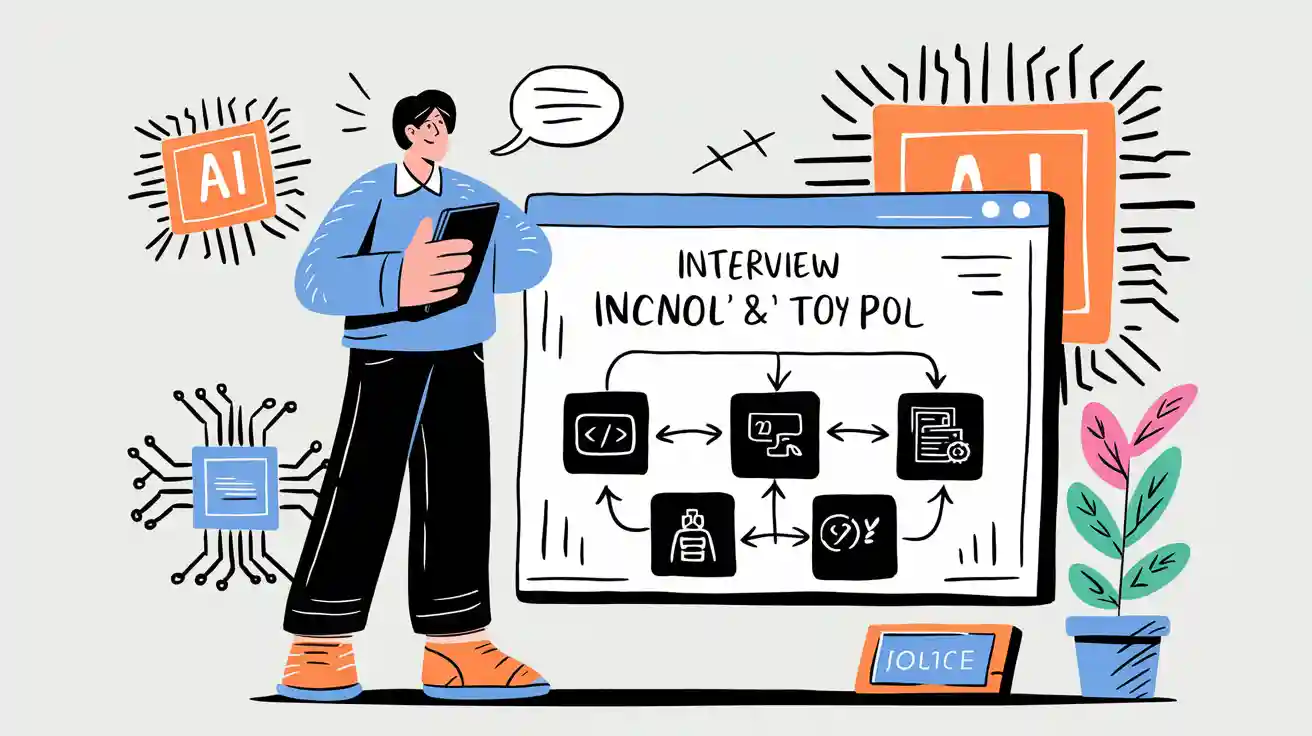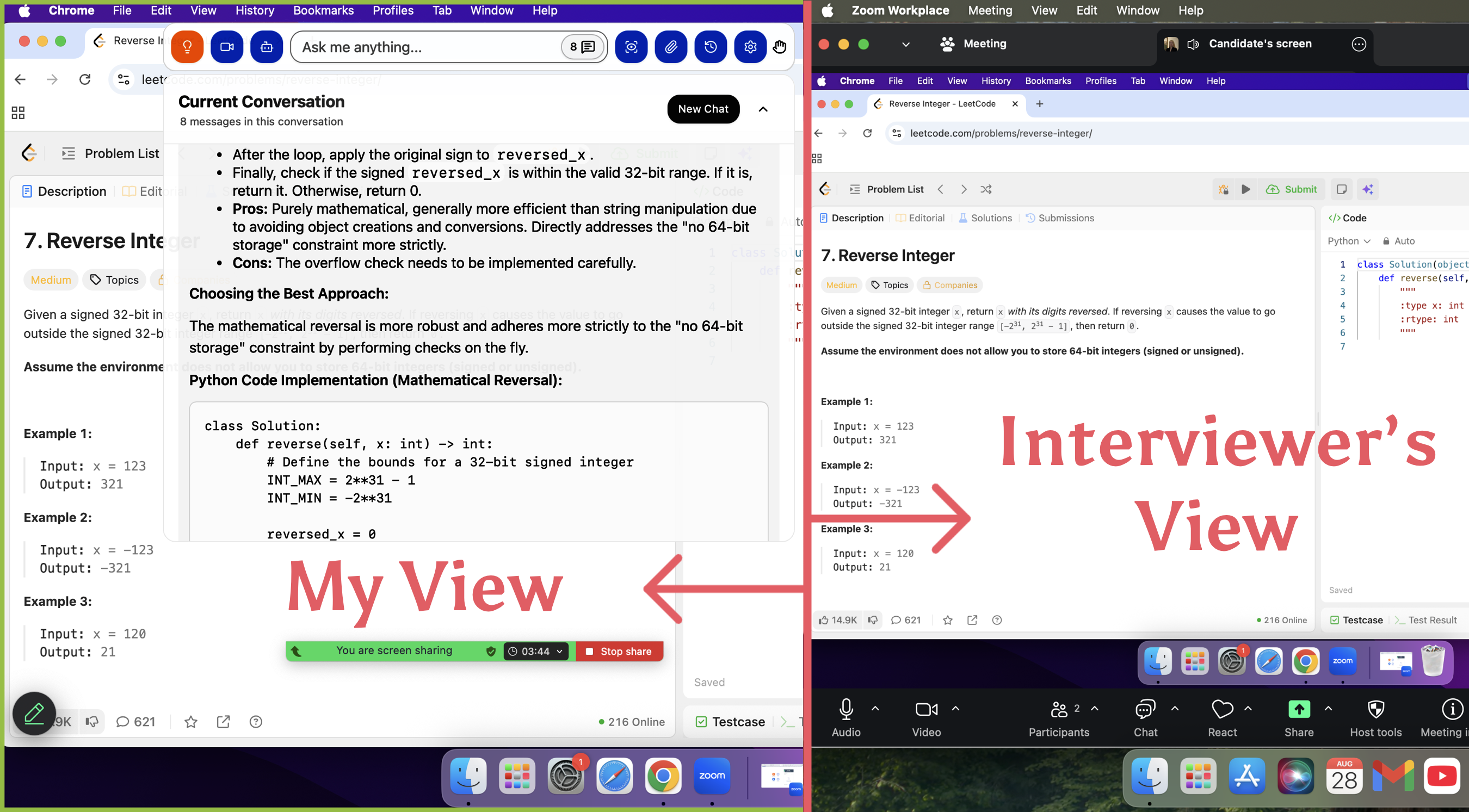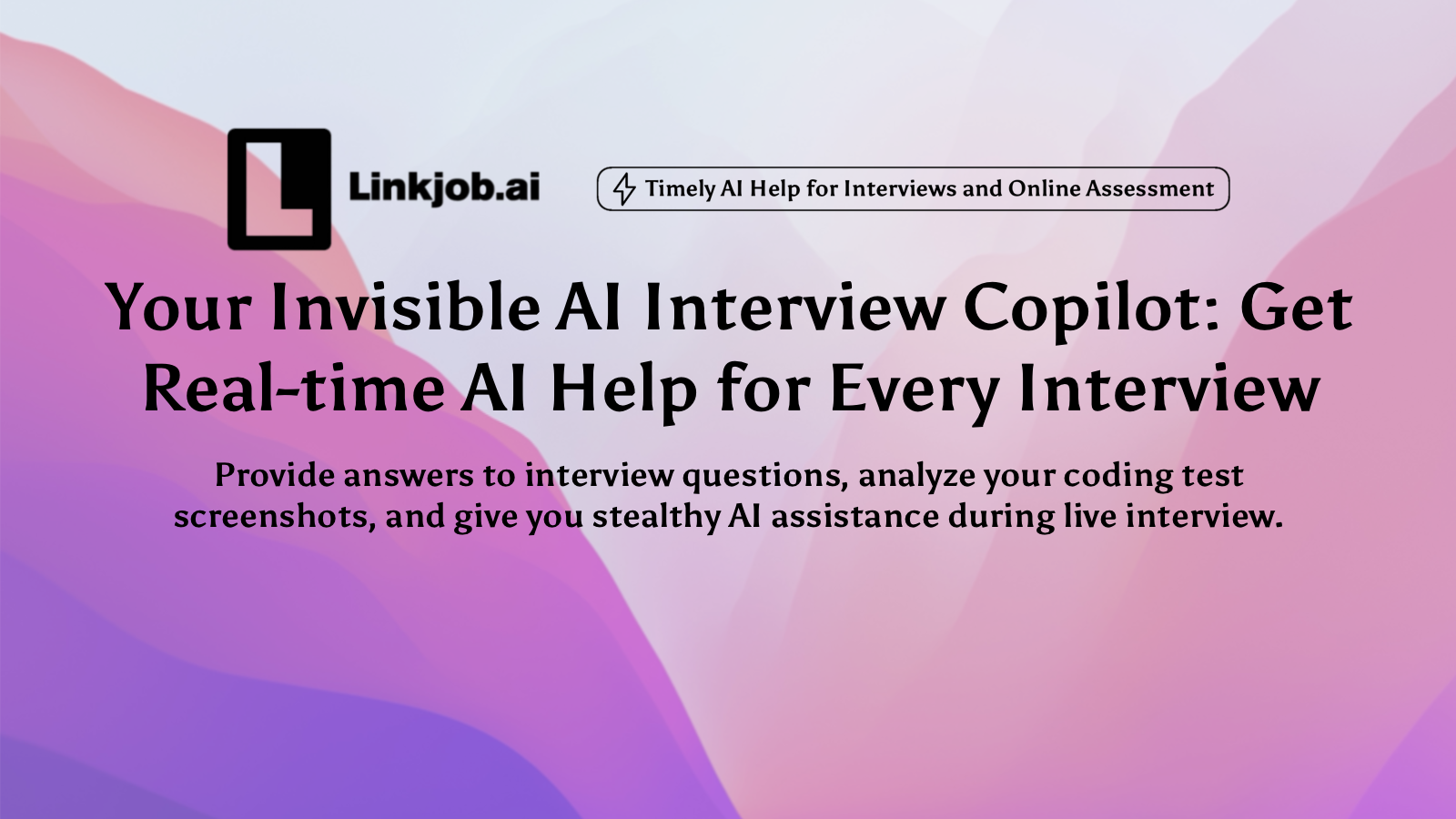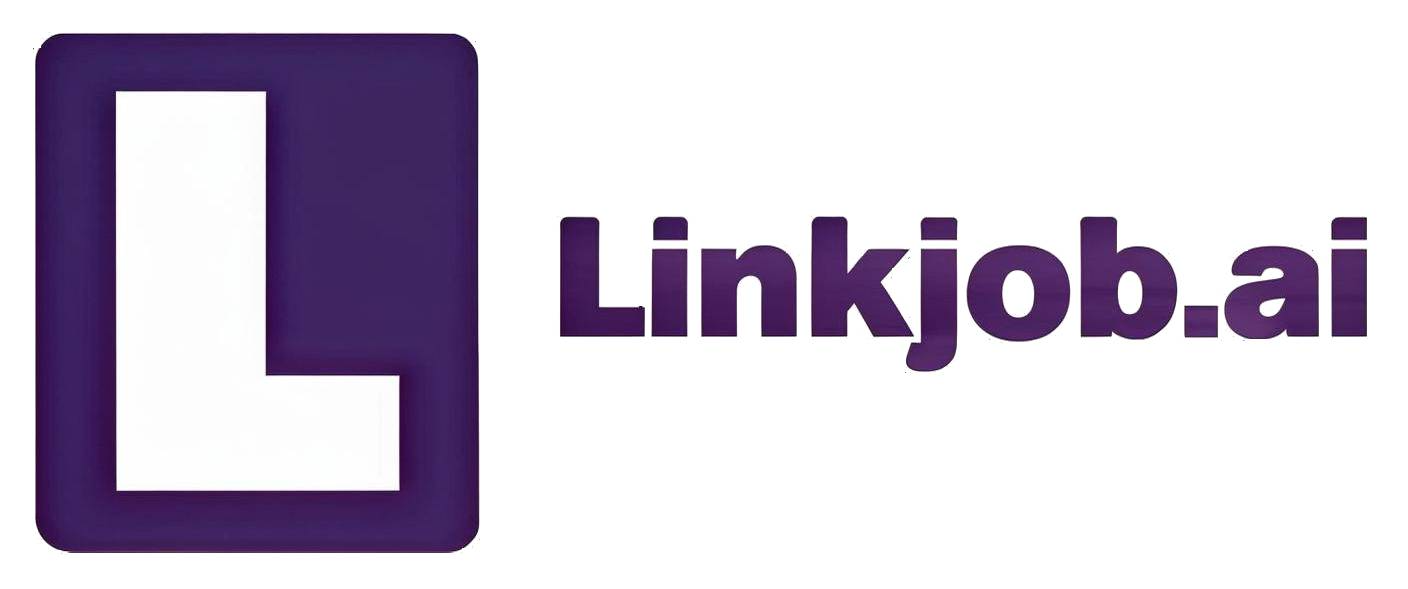How I Beat 2026 Anthropic Interview: My Process & Questions

In this article, I will provide a detailed breakdown of my entire Anthropic interview process, covering each stage, every round, and the real interview questions I encountered.
I’m really grateful to Linkjob.ai for helping me pass my interview, which is why I’m sharing my interview questions and experience here. Having an undetectable AI coding interview copilot during the interview indeed provides a significant edge.
Anthropic Interview Process
After submitting my resume, I received an invitation for a recruiter chat a few days later, which marked the beginning of the formal interview process:
Phone Screen
This was a technical phone interview, and the problem was to find duplicate files. I had to create a file myself to write a test case, which involved first writing to the entire file and then reading it completely. Afterward, I implemented chunk-based reading. The next step was to write the code to group the files by their size. For the last 15 minutes, the interviewer asked me a lot of questions, such as the reasons for choosing a specific chunk size, which hashing algorithm to use and why, how to determine if the bottleneck is I/O or CPU, and how to get the I/O throughput, among other things.
Virtual Onsite
My VO consisted of six rounds, originally scheduled for five.
Coding
This round was about multi-threaded web crawlers. My approach for this part was to first implement the single-threaded solution, then handle the concurrency. I also needed to do a little extra processing for the URLs. The interviewer gave me hints along the way. This round involved a lot of follow-up questions, such as how I would implement multi-threading, how I would perform a crawl within a cluster, and how I would distribute URLs for a distributed crawl across multiple machines.
After the follow-up, the interviewer asked if I'd ever had a similar problem. I said yes, and that led to me having an extra coding round.
Technical Project
I did a deep dive into a past project that had a significant impact. I was given 25 minutes for the presentation, which was followed by a 15-20 minute discussion.

Linkjob AI worked great and I got through my interview without a hitch. It's undetectable, and the interviewer did not find that I used it.
Hiring Manager
The primary focus was on behavioral questions and a discussion of my past experience.
Culture Interview
This round mainly focused on AI safety, a core topic for Anthropic, and also behavioral questions. The discussion was very detailed and in-depth, with the interviewer asking probing questions and discussing the examples I provided.
System Design
This was a classic Anthropic system design question, focused on designing a solution for efficiently using a GPU server's inference API.
After these rounds, I received positive feedback, but the recruiter informed me that the coding round was considered "inconclusive" because I had previously seen a similar problem. As a result, they added a fifth round with a brand new coding problem.
Additional Coding
The new challenge was to implement a Python LRU cache. I was given an existing LRU cache implementation that did not properly handle Python's variable-length arguments (*args) and keyword arguments (**kwargs), and my task was to add this functionality. The follow-up question was how to make the LRU cache persistent. I spent too much time on serialization and didn't finish the code. I initially planned to use pickle, but the interviewer suggested using json, which led me down a different path. I regret not sticking with pickle as it would have allowed me to focus on the core logic.
Overall, the Anthropic interview process felt quite compact and fast-paced. The problems themselves weren't difficult, but they contained many tricky details and edge cases to handle.
After completing all of those steps, the next part of the process was to schedule a follow-up with the recruiter. We will probably be discussing my job interests and my compensation expectations.

Interview Impressions
I found that Anthropic’s question bank is quite consistent; I felt like I had seen many of the problems before. The benefit of this was being able to prepare in advance, but the downside was that if I had seen them, it was highly probable that others had too. Therefore, the interviews demanded a high level of precision in my answers, leaving almost no room for error.
Another key takeaway was that in several rounds, the interviewers were very keen on asking follow-up questions. This meant that when I prepared, I couldn’t just grind problems and focus on basic functionality. I also needed to genuinely understand the underlying mechanisms and the trade-offs for different application scenarios.
Anthropic Interview Questions
In my preparation, I actually came across some other shared interview questions. They are definitely very valuable. I'd like to share them here.
Recruiter Call
Why are you interested in Anthropic?
What is your understanding of Anthropic's philosophy?
Technical Interview
Questions related to file deduplication.
Designing a deduplication solution to run in a production environment.
Coding
Generating program start and end logs based on a trace.
Cultural Fit
How would you handle a conflict between your personal values and your work?
Describe an experience where you resolved a conflict at work.
System Design
Design a product similar to ChatGPT Playground.
Discuss a scalable approach from product requirements to implementation, with a focus on product perspective and full-stack technologies.
Technical Project
What is your perspective on AI security?
What tradeoffs have you made for security?
Preparation Strategies
Research Anthropic
When I started my preparation for Anthropic, I realized that understanding the company’s mission and values made a huge difference. According to Anthropic's official website, the company focuses on building reliable and ethical AI systems that put safety at the frontier. Their work centers on safety, transparency, and minimizing bias. I spent time reading their official website, checking out research papers, and looking at their recent projects like "Values in the Wild" and "Agentic Misalignment." These resources helped me see how my own skills and interests matched their goals.
I also explored their product documentation and learned about their flagship product, Claude AI. This gave me a better sense of what the team values in terms of technical skills and ethical thinking. I made sure to reflect my passion for AI safety and ethics in my application and interviews.
Build AI/ML Skills
To stand out in the Anthropic interview process, I focused on sharpening my AI/ML and coding skills. I practiced building ml models, especially those related to trust and safety. I reviewed ml algorithms, llm architectures, and deep learning concepts. I also worked on coding challenges in Python and SQL, since these are often required for technical roles.
Here’s how I structured my preparation:
I reviewed ml algorithms and practiced explaining how they work.
I built small llm projects and contributed to open-source AI safety work.
I used preparation material like Grokking courses and mock interviews to get ready for coding and system design rounds.
I made sure my technical skills included both strong coding and a deep understanding of ml and llm concepts.
Tip: I also highlighted my teamwork and research experience, since Anthropic values collaboration.
Application Tips
Resume for Anthropic
I wanted to show the team that I understood their mission and had the right skills. So I focused on making my resume clear and direct. I used bullet points to highlight my achievements, and made sure every line connected to the job I wanted.
Here’s what worked for me:
I used action verbs like "built," "designed," and "led."
I included numbers to show impact, like "improved model accuracy by 15%."
I tailored my resume for each job at Anthropic. I matched my skills to the job description.
I kept my resume to one page. I removed anything that did not help me get hired at Anthropic.
I added a section for projects. I described my work on AI safety and machine learning.
Technical Interview Prep
Coding and Algorithms
Most coding interviews at Anthropic used Python. So I practiced in Jupyter Notebooks and worked with APIs, since these tools often came up in the interview.
I found that Anthropic’s coding interviews did not focus on tricky algorithm questions or advanced data structures. Instead, I saw a lot of LeetCode medium-level problems. The interviewers wanted to see how fast and accurately I could write code. They cared more about my coding speed and correctness than about Big O notation or complex algorithms. I spent time solving practical coding challenges and made sure I could implement classes with public APIs quickly.
Here’s what helped me most:
I practiced writing clean, correct code in Python.
I focused on ml and llm problems that matched real-world scenarios.
I reviewed how to build and test classes with public APIs.
System Design
System design interviews at Anthropic felt different from other tech companies. I did not see questions about huge, complex systems. Instead, the interview focused on ml and llm system design. I explained how I would build safe, reliable ml systems and how I would handle edge cases.
I prepared by:
Sketching out simple ml and llm system designs on paper.
Reviewing common system design interview questions for ml and llm roles.
Behavioral and Ethics Rounds
Anthropic Interview Questions
When I reached the behavioral part of the Anthropic interview, I knew I had to prepare for more than just technical skills. Anthropic interview questions in this round focused on my past experiences, teamwork, and how I handled tough situations. The interviewers wanted to see if my values matched their mission. They asked behavioral questions about times I worked with others, faced challenges, or made decisions under pressure.
I noticed that Anthropic interview questions often explored my views on ethical ai. They wanted to know how I thought about fairness, accountability, and transparency. Sometimes, they gave me ethical dilemmas and asked how I would build ethical and safe ai. I had to show that I understood ai safety and ethics and could talk about ai ethics and safety discussions in my work.
I learned that behavioral interviews at Anthropic also checked my communication style. They wanted clear, concise answers. I made sure to show my awareness of current debates in ethical ai and how I use these ideas in my projects.
Final Preparation
Before my final Anthropic interview, I always take time to review and reflect on my journey. I want to make sure my preparation covers every angle. Here’s the checklist I follow to help candidates like me feel ready for any ml or job interview at Anthropic:
I research Anthropic’s mission, values, and recent projects. This helps me align my answers with the company’s goals and show I care about the job.
I practice mock interviews with friends, mentors, or AI tools.Including testing Linkjob.ai with friends before the formal interview to ensure everything goes smoothly and without a hitch during the actual interview. These sessions help candidates build confidence and simulate the real ml interview environment.
I review technical concepts and ml skills using online resources. I focus on the topics that come up most often in job interviews.
I prepare thoughtful questions about the role and company. This shows I am genuinely interested in the job and want to learn more.
I reflect on my past experiences using the STAR method. This helps me structure my answers for behavioral questions and makes my stories clear.
I use AI tools for real-time feedback and resume checks. These tools help candidates improve their performance and make their job applications stronger.
I reach out to current employees for referrals. This step can give candidates an extra boost in the ml job process.
I optimize my resume for each job. I use action verbs, numbers, and make sure it passes ATS checks.
I practice answering common behavioral questions. I ask for feedback to refine my responses.
I study the interview structure. I want to know what types of questions to expect in ml and job interviews.
I plan my outfit and practice good body language. First impressions matter in every job interview.
I reflect on my preparation and past interviews. I look for ways to improve and boost my confidence.
FAQ
How long did it take you to prepare for the Anthropic interview?
I spent about two weeks getting ready. I practiced coding, reviewed machine learning concepts, and did mock interviews.
What makes Anthropic's interviews unique or particularly challenging?
A key difference is the strong focus on AI safety and ethical alignment. You'll need to be prepared for deep, probing questions about these topics, as well as your personal values and how you've handled trade-offs in past projects. The interviewers also tend to ask a lot of follow-up questions, so it's not enough to just know the answer; you need to genuinely understand the underlying principles and concepts.
What should I do if I get stuck during an interview?
Ask for clarification if needed.
Use the STAR method to organize your answer.
See Also
My Curated List of the Top 20 Real Anthropic Interview Questions
How I Turned Codesignal Anthropic Practice Into a Winning Routine in 2025
My Simple Steps to Ace the Anthropic Concurrency Interview in 2025
My 2025 Anthropic Software Engineer Interview Process and Real Questions

